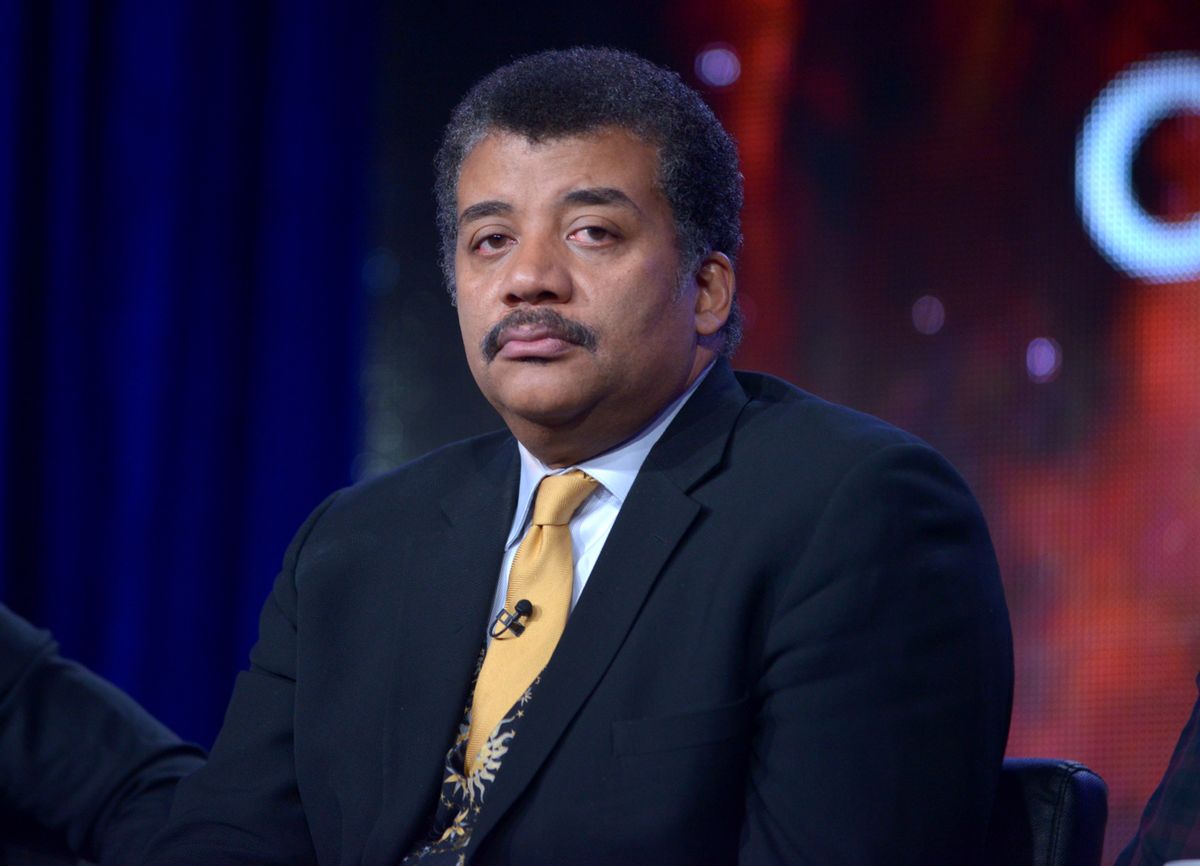 Creationists believe we have a responsibility to be, “good stewards of the earth God created, protecting both planet and people from preventable destruction.” Yet when asked about climate change and if mankind should do what we can to prevent it, Elizabeth Mitchell of the creationist group Answers in Genesis (AiG) says the answer is “no.”
Creationists believe we have a responsibility to be, “good stewards of the earth God created, protecting both planet and people from preventable destruction.” Yet when asked about climate change and if mankind should do what we can to prevent it, Elizabeth Mitchell of the creationist group Answers in Genesis (AiG) says the answer is “no.”
This response stems from this week's Cosmos episode in which Neil deGrasse Tyson discusses the scientific fact that climate change is happening and that humans are the driving force, and therefore we must be the solution.
Yet, if creationists think we must be good stewards to the earth they believe God created, why wouldn’t they work to save it? Well, Mitchell explains:
“The repercussions of drastic action would hurt a lot of people, especially the poorer among us. Therefore, if the problem is not perilous, man-made, or man-fixable, a worldwide civilization overhaul is neither necessary nor advisable. We must be sure of our facts. And those 'facts' are neither as easy to come by nor as clear to interpret as Dr. Tyson claims.”
This is false. If you happen to care about the scientific method and peer-reviewed scientific studies, you will see that 99 percent of scientists worldwide agree the climate change we are dealing with is in fact man-made.
Mitchell seems concerned that poor people will be hurt if we enact global climate change policy to save the earth, yet she ignores that the effects of climate change are actually killing poor people. As Vox.com reported, the World Health Organization estimates that 150,000 people die every year due to the effects of climate change, primarily in poor countries. Crops around the world are increasingly at risk and longer droughts will make harvesting crops nearly impossible. Certainly this will affect people more than new coal regulations and easing our dependence on fossil fuels.
Mitchell hands the reins over to Alan White, go-to scientist on all things "climate change" at AiG. White is not a climate scientist, but clearly AiG isn’t very picky about what it considers science to be. Dr. White suggests:
“It seems to me that forcing all people on the earth (if you could) to use more expensive sources of energy would lower the standard of living of everyone. Before I would want to propose that the world take such a drastic step, I would want to make sure that I was right about the scientific issues.”
White is ignoring all the evidence—evidence that climate change is man-made and is happening now, and evidence that alternative energy is actually less expensive than fossil fuels.
Yet even when something does cost more, if it is for the betterment of civilization, one would think this would be worthwhile. White ignores that governments play a key role in these changes and costs, so his claim that this will cost people is more speculative than anything he is calling out Tyson for.
In the show Tyson correctly pointed out that, “the chief climate-regulating gas of our global thermostat,” is carbon dioxide, something AiG claims is not true. In fact, they call it, “a blatantly incorrect claim that ignores the overwhelming importance of water vapor.”
White's absurd argument:
“You have been led to believe that the most important greenhouse gas is carbon dioxide. It is not. Water vapor and clouds are actually responsible for about 80 to 90 percent of the total greenhouse effect. That’s right, at least 80 percent.”
This claim is very misleading.
Water vapor does play a major role in climate change, but what White doesn’t want you to know is that when carbon dioxide enters the earth’s atmosphere, water vapor actually doubles its effects through what scientists call a positive feedback loop. This in turn makes carbon dioxide's impact much larger. Water vapor alone is not to blame, but it amplifies the effect we are having on the environment.
Curiously, White fails to mention this and only manages to call Tyson dishonest and overplays his hand on water vapor as the sole culprit behind climate change. On this claim, White, as he often does, stands against the scientific community, which understands this stuff far better than he does.
AiG continues to claim Tyson is wrong because his science also relies on the, “overblown interpretation of the earth’s age,” because Tyson, once again relying on the scientific evidence, presents his arguments based on an earth that is 4.5 billion years old, not the 6,000 years creationists absurdly claim.
Tyson goes on to say, “The earth keeps a detailed diary written in the stones of yesteryear. Climate scientists drill ice cores in the depths of glaciers in Greenland and Antarctica. The ice layers have ancient air trapped inside them. We can read the unbroken record of earth’s atmosphere. It extends back over the last 800,000 years.”
This is troublesome to creationism because if scientists can date back 800,000 years in ice layers, this blows a hole in the 6,000-year-old earth claim. Creationists only brush off this claim by calling it presumptuous.
Once again, even as Cosmos doesn’t touch evolution, creationists must take issue with Tyson. This time because he dared to claim humans could impact the perfect world their God created and because he based his claims on scientific evidence that revolves around the age of the earth.
One must wonder: if an entire Cosmos episode was devoted to the theory of gravity, would AiG would take issue and claim gravity is presumptuous and that Tyson should refer to scripture instead of Newton and Einstein?

Shares